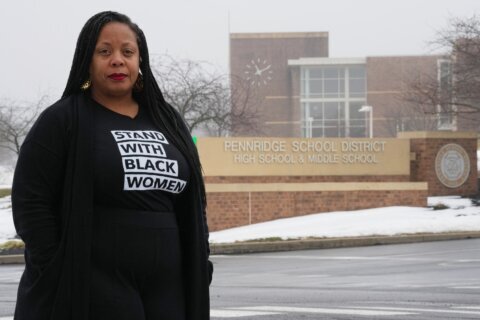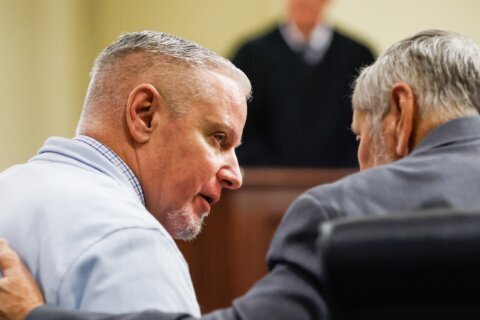As election season gets more intense, college campuses around the country are becoming pressure cookers with heightened political tension.
Some students are really feeling the stress.
“This time of year is already stressful for students with midterms and then upcoming finals and projects,” said Nicole Ruzek, chief mental health officer at the University of Virginia. “They’re already in a moment of stress trying to get to the finish line … in addition to this.”
College campuses have become more polarized with students expressing concerns about how political views can strain friendships and even lead to confrontations.
Polls are tight and no one knows what will happen in the election between former President Donald Trump and current Vice President Kamala Harris, adding another factor — uncertainty.
“With uncertainty comes a lot of anxiety and just wondering what’s going to happen,” Ruzek said. “That’s what I’m noticing, with folks anxiously anticipating what’s next.”
Ruzek and her team are putting additional mental health resources in place at the university, including workshops on stress management.
“They can come because they’re worried about finals or because they’re worried about the election or something else,” Ruzek said. “It really (provides) them with strategies for how to manage their stress … how to have productive conversations that don’t leave them spiraling.”
She said there will be extra counselors on hand in the days following the election who can “meet with students just (to) talk about why they’re feeling stressed, what’s going on and how things are impacting them.”
“Hopefully they can leave, having those tools, and (are) able to go back into the academic context and focus on the many things that are in front of them right now,” Ruzek said.
Ruzek recommends that students limit their social media use, get enough sleep, exercise and engage with friends in activities that don’t involve heated political conversations: “Just be together in a way that feels positive and supportive.”
On top of everything else, the shadow of the Israel-Hamas war continues to hang over campuses.
“This idea that I might say the wrong thing kind of scares me,” Ty Lindia, who studies political science at George Washington University in D.C., told The Associated Press.
A year after Hamas’ attack in southern Israel, some students say they are reluctant to speak out because it could pit them against their peers, professors or even potential employers.
“You have to tiptoe around politics until one person says something that signifies they lean a certain way on the issue,” Lindia said.
Tensions over the conflict burst wide-open last year amid emotional demonstrations in the aftermath of the Oct. 7 attack. In the spring of this year, a wave of pro-Palestinian tent encampments led to some 3,200 arrests nationwide.
The Associated Press contributed to this report.
Get breaking news and daily headlines delivered to your email inbox by signing up here.
© 2024 WTOP. All Rights Reserved. This website is not intended for users located within the European Economic Area.








